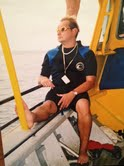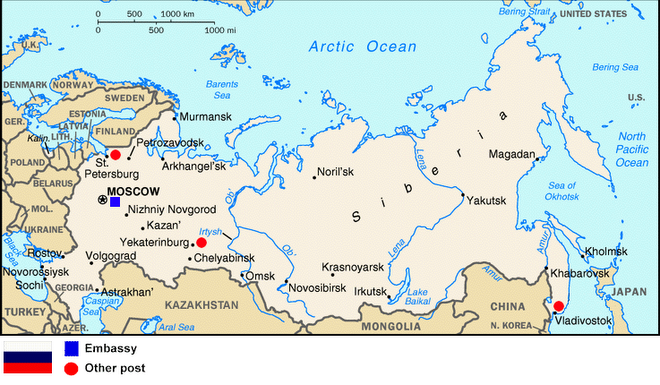
The first speaker, Monday, was Richard Spring, the British, opposition Conservative MP, who is President of the British Ukrainian Society. I like Dickie: he is elegant company over a tumbler of whiskey. He is a charming old cove – very bright but likes to pretend otherwise – and made much of how “across both sides of the House of Commons – don’t worry about so-called Enlargement Fatigue – we will support Ukraine’s membership of the European Union” (pause for cheer which… um… didn’t come).
Of course, it is easy to support something not remotely likely soon to happen. Dickie Spring is likely to be gaga or even pushing up the daisies before Ukraine has any meaningful chance of accession. In terms of acquis communautaire it must be even ten years behind Turkey. So, you know, don’t hold your breath…
The opening session’s government speakers – three ministers no less – was a remarkable insight into how the Soviet-style of long speeches that rattle off statistics still is the preferred modus operandi of the post-Soviet politician. They were gruesomely dull to sit through.
Across the morning, the star speakers were from Ferrexpo, which had such a superb debut on the London Stock Exchange last year. Konstantin Zhevago is the acceptable face of oligarchy: the man is also a visionary and his commitment to professional management – his imported CEO, Michael Oppenheimer, spoke later in the day – transparency and solid corporate governance has been rewarded by a 160% rise in the share price since last year’s IPO.
Some notes from my speaker program (I do this at conferences like I do at the opera and ballet – but without the opera glasses):
- Konstantin Zhevago – everything that has been beneficial that has been achieved in the Ukrainian economy has been in spite of, not because of Ukrainian governments, he said.
- Dr Anders Aslund (Peterson Institute for International Economics, Washington DC – and a well-known Cold War-economic analyst, notably well-funded in the USA – winks – and sometime economic advisor to Ukraine itself): “Ukraine must break the link to the US$ in order to control inflation. The Government shouldn’t talk about it, it should just do it: and, as a first step, peg the Hryvna to a basket of currencies weighted towards the Euro”
Exile opines: he’s right and Ukraine needs to revalue its currency to sterilize import-related inflation. I think it could now find a natural level 15-20% above where it is now against the USD, IMHO. It is a tricky issue though. Although nominally – indeed constitutionally, independent, the oligarchs have the National Bank of Ukraine by the balls, and don’t want a stronger Hryvnia which will take the steam out of the export growth of their heavy industries. Equally, a ‘basket of currencies’ reflecting Hryvna reality means a chunk of Russian rubles: monetary-nerd, President Yushchenko, would hate that. So it won’t happen just yet: the politics isn’t right, unless Yush’ thinks the Hryvna can jump straight to a free-float (which will be an econometric shock he will be afraid to risk).
Ilya Arkhipov, System Capital Management – sadly (I say sadly because I have a really good mate who works for SCM, who’ll read this, and will not be amused, but…) wins the raspberry award for worst speech. Although it was interesting for us to get a walk-around the lesser-known parts of Mr Akhmetov’s mighty empire, it would have been nice if he had addressed the issue (“Showing the experience of leading…investors”). Speakers from my region always ignore the issue and force-feed you an investor presentation; quite counter-productively so.
The foreign investor experience:
I thought this was a noteworthy bit. The two biggest foreign investors in Ukraine are Telenor (asset revaluation rather than hard cash) and ArcelorMittal (hard cash). Both have had an uneven experience, although rising asset values in the case of the former; and strong profits in the case of the latter, mean they will stick it out.
The speakers were:
- Ole Bjorn Sjulstad – very senior at Telenor; staggeringly bad speaker (who desperately needs help to be able to give an effective speech).
- Narendra Chaudhary – very, very senior at ArcelorMittal (and one of Lakshmi Mittal’s most trusted lieutenants BTW). I was, BTW, quietly appalled at the bluntly racist comments – in the audience murmur around me – while he was speaking. I was even more appalled that these insults were being whispered in English, as well as Russian.
Both these companies complain about the lousy rule of law in Ukraine, huge uncertainty over ownership rights, corporate governance and, of course, bent judges. The Mittal part of ArcelorMittal bought Kryvorizhstal, the giant, 46,000-employee steel mill, at auction (it having been seized by La Orangina, after the Revolution, from Renat Akhmetov, now one of the king-makers of Ukrainian political and economic life). Since then Kryvorizhstal has been plagued by union problems and last year, says Chaudhary, suffered 457 government agency investigations and enquiries: thus showing that Mr Akhmetov’s reach is modest compared even to his grasp.
Both being subject to poorly written and corruptly administered law, these two companies are *the* textbook examples about investment in Ukraine: “you should make good money, but it is the most risky place you’ll likely ever invest in and the one whose business environment is perhaps the least trustworthy”. I am slack-jawed at the (especially European) firms which blunder in there (“Ukraine is a democracy, it is more European. It is therefore less risky than Russia”) – completely talking out of their arses.
If these two firms united in delivering their message of optimism, hedged with criticism – and delivered it just a tad more effectively – even Ukraine’s notoriously self-obsessed and naval-gazing political elite might, you know, finally wake up and do something about it…
PS: Stefan Wagstyl, Eastern Europe editor of the FT, is a nice man who writes well and insightfully: he is hopeless, however, at chairing a panel session or acting as moderator of a conference. Memo to all conference organizers: stop using him! There is a skill to chairing a conference panel session effectively: he hasn’t got it.
PPS: Because Ferrexpo is actually a UK PLC which, via a Swiss vehicle, owns its Ukrainian assets (and therefore issued Ordinary Shares on the London Stock Market not, as is usually the case for CIS firms, GDRs), it is actually just a hair’s breath away from being elevated to the FTSE100, so great has its share price run been.
Now, if that happens the Kremlin sure will sulk: Russian firms issue GDRs, not Ords, in London so cannot be part of the FTSE100 (silly rule BTW). I met with one Russian mega-firm last week which wasn’t being very subtle about the fact that the Kremlin wants them to list *anywhere* other than London, even if just to piss on the British.





No comments:
Post a Comment